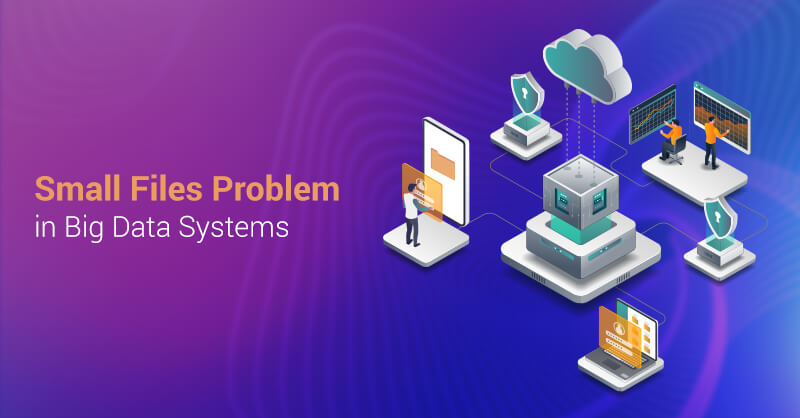Everything You Need to Know About an Enterprise Data Warehouse
Written by Hafsa Mustafa
Technical Content WriterIn order to make prudent decisions in the business world, it is essential to take a holistic approach that is backed by concrete facts. However, it is often not possible as organizational departments mostly work in silos.
The importance of keeping a unified information system for making informed decisions cannot be overstated here. That is why businesses turn towards enterprise data warehouses to centralize their data.
This begs the question; what is an enterprise data warehouse?

Enterprise Data Warehouse
An enterprise data warehouse is a centralized storage facility for data that is used for analytical and reporting purposes. EDW is also sometimes referred to as a database of databases. In other words, an enterprise data warehouse can be defined as a data repository that can be set up on-premises or virtually. Some popular examples of enterprise data warehouses are Snowflake, Databricks, AWS, etc.
Types
Enterprise Data Warehouses come in three forms:
Virtual Data Warehouse
Virtual or Cloud-based Data Warehouse is a remotely located data warehouse that is not owned by the business organization itself that is using it but by a second party. The organization only pays for the services. A cloud-based platform is significantly less expensive, more integrated, and highly scalable. However, there are some downsides to it as well, such as network latency and security.
Hybrid Data Warehouse
Hybrid Data Warehouse involves a mixture of both on-premise and cloud data warehouses. It ensures compliance and favorable flexibility. This hybrid model lets a company enjoy the efficiency of a traditional warehouse and the scalability of the cloud at the same time.
Classic Data Warehouse
Classic or On-premise Data Warehouse consists of hardware and software set up in a definite location to meet solely the needs of the organization that has purchased it. An on-premise data warehouse provides speed, security, and enhanced control to its users.
Enterprise Data Warehouse Architecture
The architecture of Enterprise Data Warehouses tends to vary. It can acquire the following structures:
One-tier Architecture involves a data warehouse that is directly connected to the Reporting Tool. Since for every query, the reporting tool sifts through all the data stored in the warehouse, the performance of queries gets affected if the system contains large volumes of data. Therefore, it can be suggested that one-tier architecture suits organizations with small data sets.
Two-tier Architecture contains three layers. Data Marts are sandwiched between the data warehouse and the reporting layer. As data marts are subject-oriented, they improve the quality of queries naturally.
Three-tier Architecture has a complex structure. It has four layers; data warehouse, data marts, OLAP, and Reporting layer. OLAP is an acronym for Online Analytical Processing – a computing technique. OLAP Cubes contain data in a multidimensional form and allow efficient extraction.
How is EDW different from ODS and Data mart?
The following table has been assembled to clarify the difference between the three structures.
| Parameters | ODS | Data Mart | Data Warehouse |
|---|---|---|---|
| Queries | Simple queries | Subject-oriented queries | Complex queries |
| Reporting | Near real-time | Sits between Data warehouse & front-end reporting | Reporting on historical data |
| Data load frequency | Every few minutes/ hourly | Daily/Weekly | Daily-Quarterly |
| Size | Smaller than Data Marts & Data warehouses | Usually less than 100 GB in size | More than 100 GB; often close to a Terabyte |
Benefits Of Setting Up Data Warehouses
The enterprise data warehouse (EDW) can benefit the businesses in the following ways:
Scalability
An enterprise data warehouse comes with significantly increased capacity to optimally handle different workloads. It can make available the resources whenever there is a need by increasing the number of connected systems. In this way, EDW ensures improved data accessibility and availability.
The backbone of BI; Quick Insights
With the help of an enterprise data warehouse, business users can build quick insights from large volumes of stored data. Also, one needs not be a technical expert to benefit from the services of a data warehouse.

Since an enterprise data warehouse tends to be user-friendly, it makes self-service dramatically easier for various departments, for instance, finance, human resource, etc.
Structured Data
Unlike data lakes, a data warehouse always stores data in a structured form. It follows a standardized format and pattern to keep the data in its storage layer. This eventually makes the process of data retrieval incredibly easier for the users. It is one of the reasons why data scientists and engineers use data warehouses for their Machine Learning and data transformation projects, respectively.
Data Integration
Since an enterprise data warehouse integrates data of a company by unifying it at a single, centralized platform, it helps different departments stay on the same page. Any person can access the most up-to-date data and track developments with the help of an enterprise data warehouse. EDW also provides users with a broader picture, a bird's-eye view, of the business.
Multiple Benefits
Besides assisting Business Intelligence through data integration, an enterprise data warehouse finds uses across multiple areas. For example, an EDW can be utilized by data analytics, reporting, and data mining departments to accelerate their initiatives and make data-driven decisions.
Better Security
This characteristic applies largely to the cloud data warehouses that keep a backup of all the data by duplicating the content. In this way, valuable data is never lost, and one can always recover it if a disaster strikes the system.
Conclusion
In a nutshell, it can be said that with the help of enterprise data warehouses, businesses can leverage their data to introduce speed, efficiency, high productivity, and simplicity in their operations. An enterprise data warehouse undoubtedly turns the data sets into a strategic asset for a company. If you are interested to learn how to harness the true potential of your enterprise data warehouse, feel free to get in touch with Data Engineering experts at Royal Cyber Inc.



